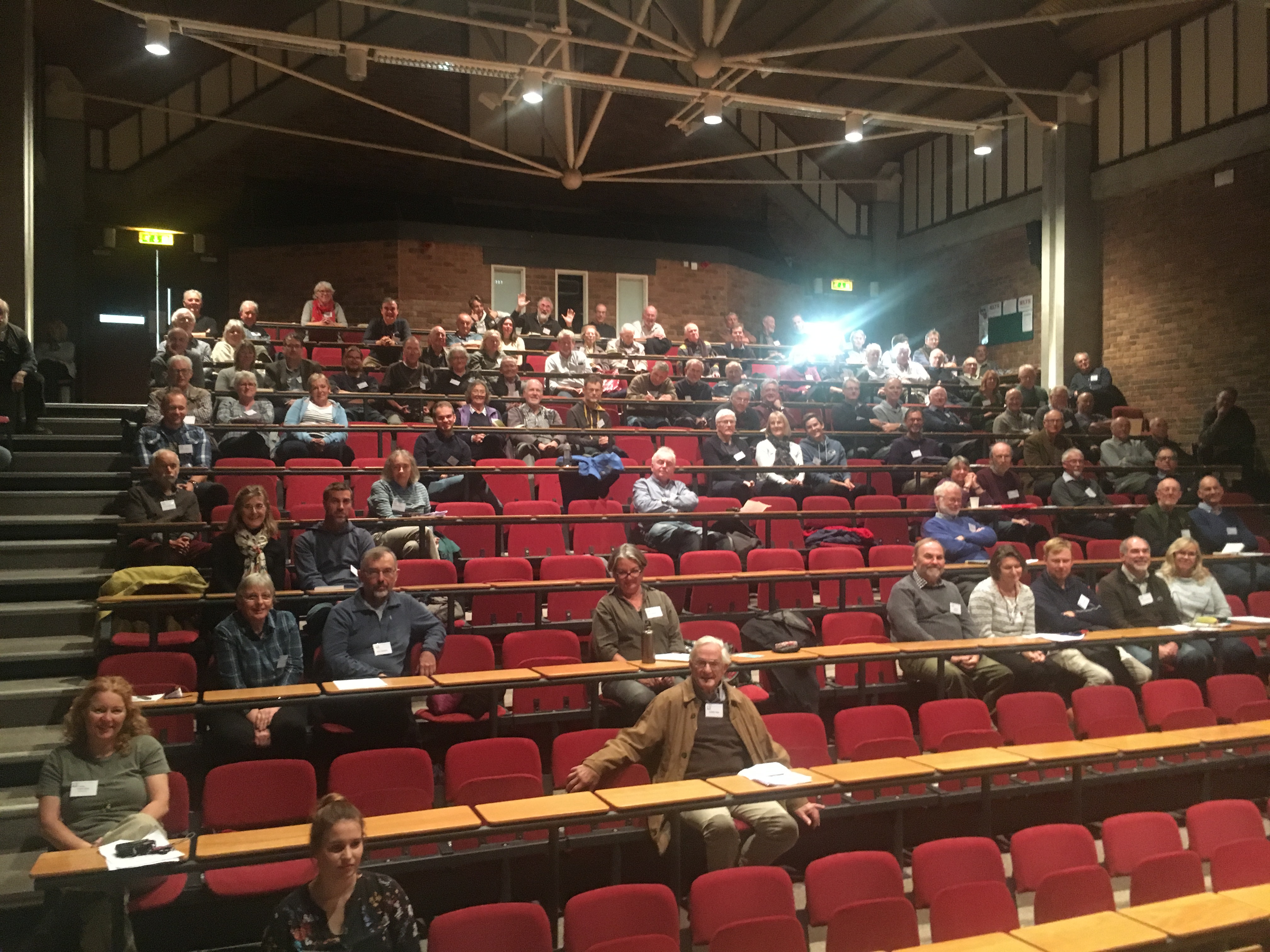
I spoke at the Kent Ornithological Society’s conference in Canterbury on Saturday. I’d like to thank the organisers for inviting me and laying on a great day for us all.
The road to Canterbury passes too close to Rainham Marshes to ignore them (and a Cattle Egret or two), and too close to Gravesend not to stop and look for a Beluga (no luck) , and then too close to Capel Fleet not to stop and see c15 Marsh Harriers coming in to roost.
And the road back from Canterbury on Sunday passed too close to the White-billed Diver off Margate not to go and see it (eventually) and then too close to Oare Marshes not to have a look (lots of Blackwits), and indeed too close to Graveney Marshes not to have a quick look at them.
But on the day of the conference we had a string of excellent talks from, in order:
- Andy Clements – an excellent talk about various aspects of the BTO work relating to migration
- Nicole Khan (RSPB) and Anthony Curwen (Quex Estate) on Turtle Doves
- Steffan Walton (Sandwich Bay BO) on Turnstone numbers and their local decline
- Will Tofts (RSPB) on Black-winged Stilts
- Carol Donaldson on Lapwings
- Sara Zonneveld on ground-nesting birds on Dartmoor
- and then me.
I was paid two ultimate compliments: having a heckler (not the first time) and generating a comment to the organisers about the “masterstroke of having a full blown Corbinista (sic) as the finale!”. It was a very warm and friendly audience and I’m grateful that they didn’t all leave to search for the White-billed Diver, and grateful to it for staying until the next day at least!
If I had visited Capel Fleet 30 years ago I’d have been more likely to see a Hen Harrier, and less likely to have seen a Marsh Harrier. It was striking that a show of hands was overwhelmingly in favour of the view that wintering Hen Harriers are much thinner on the ground these days than in the past. This is hardly surprising when so many of them, including birds reared in Scotland, ‘disappear’ ‘mysteriously’ on grouse moors in northern England and the English breeding population is now so low (and often unproductive).
I’m relieved to see, now I check, that one of the few ringing recoveries of a foreign-ringed Hen Harrier in the UK was indeed a bird found illegally killed (poisoned, actually) in Kent (Deal, actually) a long time ago (the 1962/63 winter, actually)(see page 17 in Inglorious).
Copies of Inglorious were selling like hot cakes at the end of the day and several people took away copies of Remarkable Birds too. A good half a dozen people said they would write to their MPs (and I wonder whether they have…?). A great crowd and a fun day – thank you for having me. Maybe Jeremy Corbyn next year?
Thanks for the inspiring talk. Having previously read your book, ‘Inglorious’ I enjoyed the talk thoroughly on both its own merits and as a kind of recap. Pleased we stayed to listen; particularly as we caught up with the first county twitchable White-billed Diver the following day.
Good to catch up with you at the conference ; both being RSPB retirees and wondering where the time goes. A brilliant session on the anachronism that is driven grouse shooting. (although 1 delegate thought you’d be talking more about hen harriers!)
Phil – many thanks!
Wintering Hen Harriers have definitely become scarcer on the Somerset Levels over the last 10-15 years and as you say given the circumstances that is hardly surprising. However, it does seem that there has been a slight increase in reports ( from very very low to very low) so far this Autumn so maybe there is a very small change for the better.
Trevor – I remember thinking when I was at school that surely hen Harriers would get quite common on The Levels over time (because the population was on an ‘up’ then thanks to afforestation).
It was indeed an excellent conference. The standard of all the speakers was excellent and everyone, I think, came away having learnt something. I was particularly pleased to hear the views of an enlightened farmer even if not everyone in the room may have felt comfortable with everything he had to say. Engagement is great when it works and all parties are prepared to listen. Another personal highlight was having a Hawfinch fly over the university campus when I was on car park duty. Above all, though, it was good to catch up with Mark and better still to see him again when searching for the White-billed Diver. As I was one of the band of six birders who refound it on Sunday morning several miles away from where it had last been seen I think you owe me a drink Mark! I wonder if any of the three disliking this thread were actually there ……